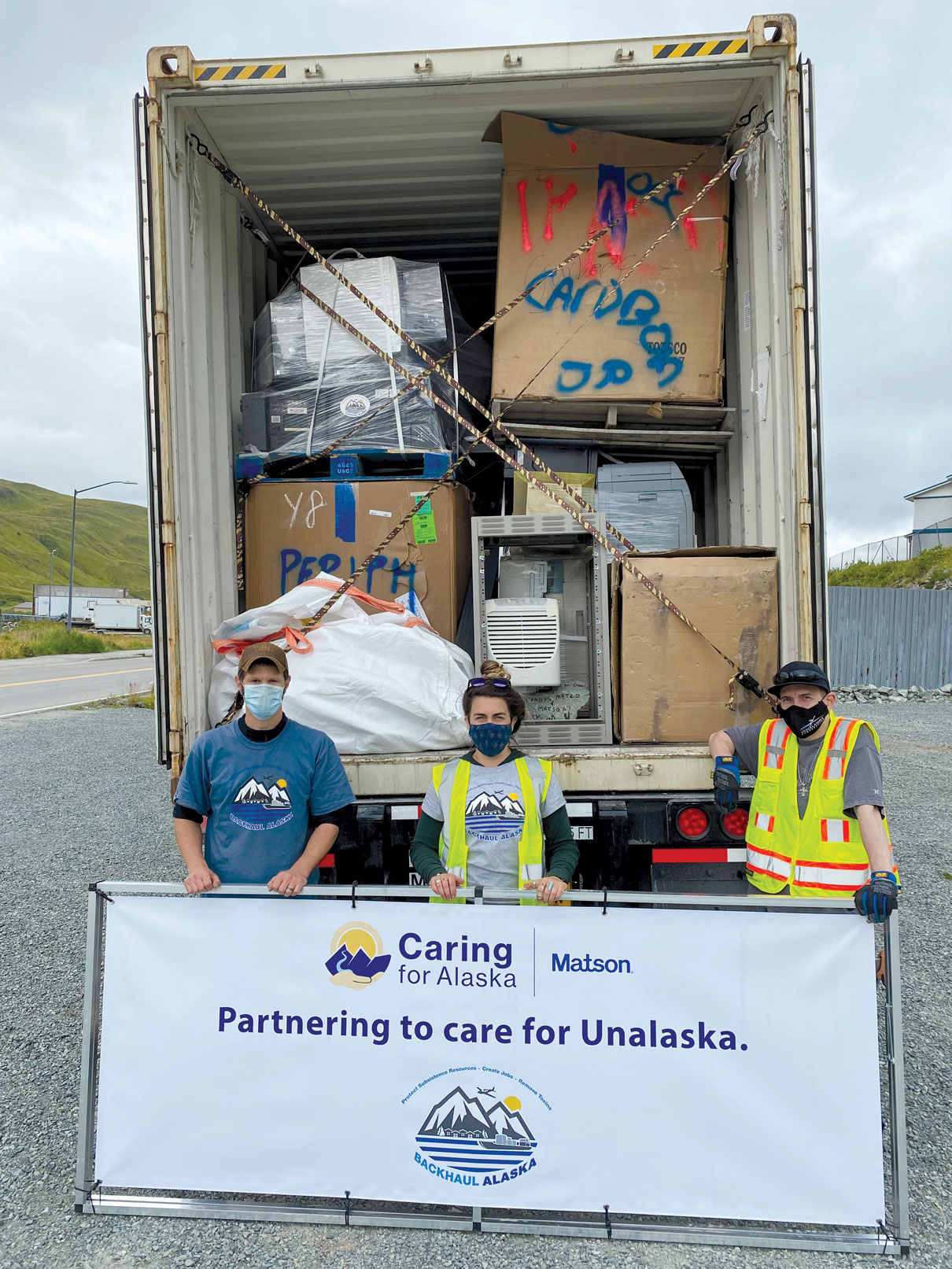
Matson Gets the Lead Out of Rural Alaska
Matson Gets the Lead Out of Rural Alaska
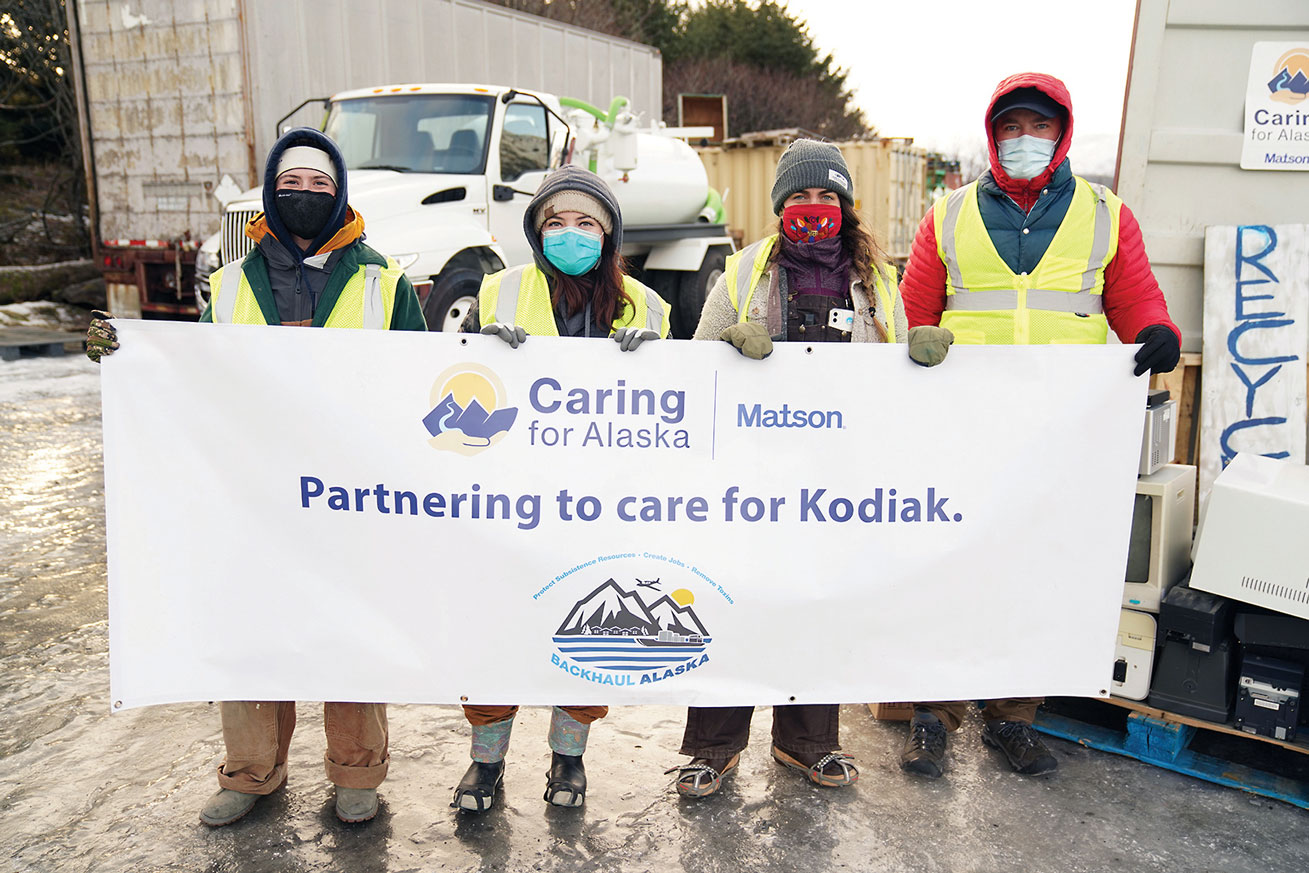
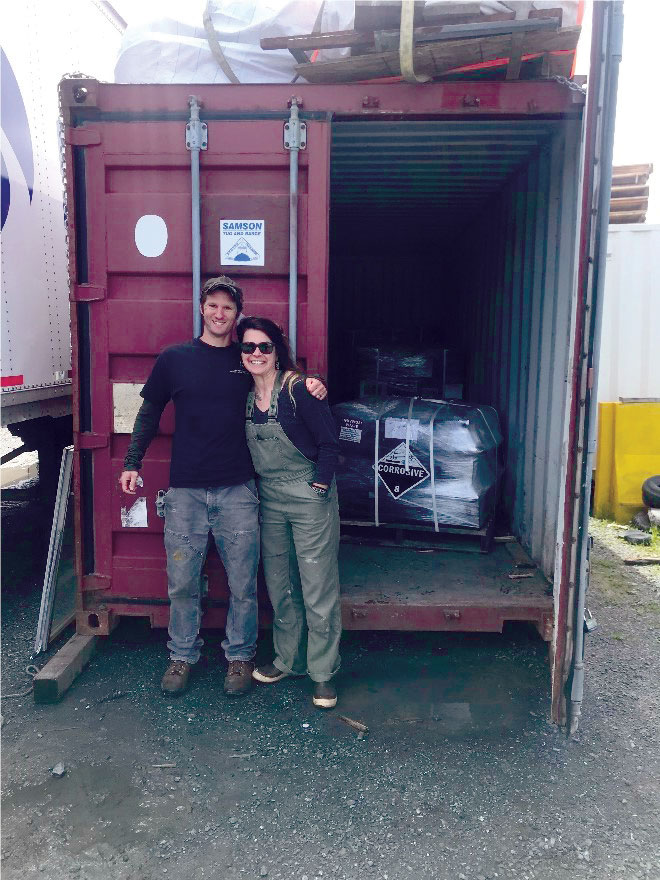
2022 Q3
In rural Alaska, the financial and logistical barriers to removing hazardous waste can present health, safety, and environmental concerns.
“There’s a lot of good support for getting stuff into the communities, but once it’s been used, it’s really tough to get it back out,” said Reilly Kosinski, statewide coordinator for Backhaul Alaska, an organization trying to help solve that problem with support from Matson’s Caring for Alaska program. Landfills in rural Alaska weren’t designed to hold toxic chemicals from things like batteries and computers, and when waste accumulates, it can get into the air and water. This harms the environment, residents’ health, and wildlife.
Backhaul Alaska helps remove hazardous materials from communities, shipping them out of state to recycling facilities where they can be safely processed. The organization helps with coordination, financial support, and shipping logistics.
When the pilot program launched in 2018, Backhaul Alaska was working with 15 communities. Today, that number has increased to around 40, and the program aims to expand to all of rural Alaska eventually.
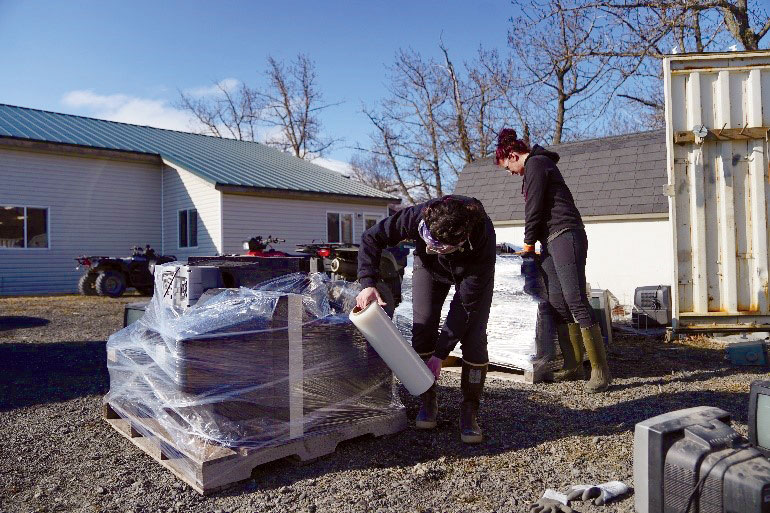
Backhaul’s Stephanie Mason said the response from Alaskans has been tremendous. “It’s such a need in this state, especially in small rural communities,” said Mason. “When you’re reaching out and willing to assist them with material and waste that is putting their environment and people at risk by the way they’re just accumulating and disposing of it, they’re so grateful, and it’s very well received,”
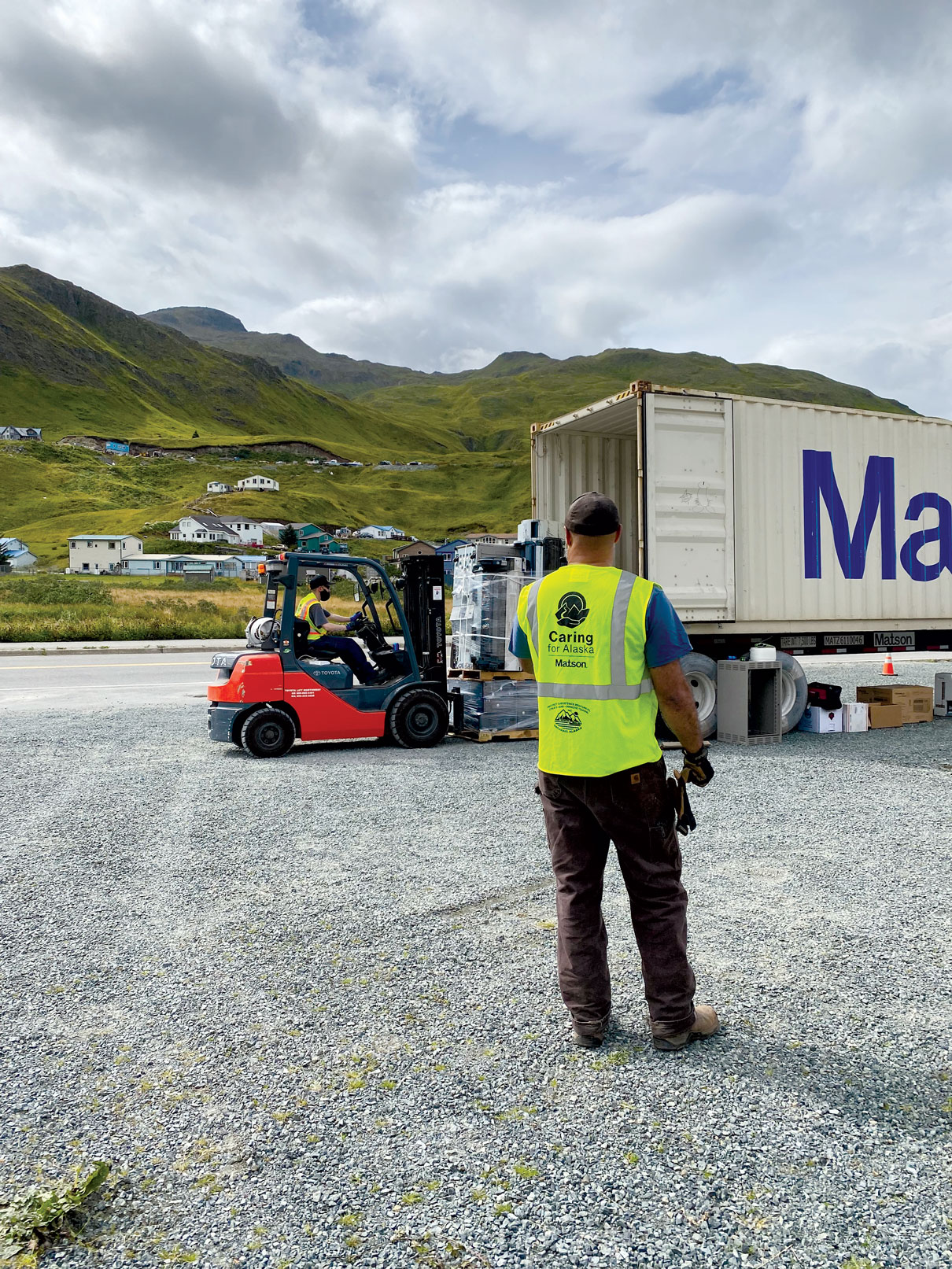
The organization has ongoing collection and removal programs throughout the state, but they also hold special events. In 2021, they organized electronic waste collection events in Unalaska and Kodiak. Through Caring for Alaska, Backhaul received two 40-foot containers to ship the collected materials from those events.
Backhaul is receiving a donation of 10 more Matson container shipments this year, which will help them serve more communities on the road system. The contribution will allow Backhaul to focus its financial resources on other aspects of its programs and events, such as expanding collection events to interior Alaska communities.
Mason and Kosinski said they hope that with continued growth and support, they can hold these collection events annually, removing more hazardous waste from Alaska’s environment each year.
